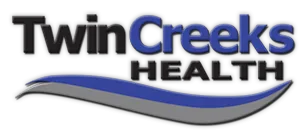Many musculoskeletal complaints arise from injuries sustained in sports. Each year we see athletic performance draw closer to the limits of human potential. Understanding the biomechanical principles involved helps us to prevent injury and restore functional integrity and stability through rehabilitation.
The sheer volume of time put into training by professional athletes is often quite remarkable. For example, runners may compete and train over 200 miles per week, swimmers may spend four or five hours in the water daily, and the acquisition of skills for an event such as a pentathlon may utilize even longer periods per day. Thus, the exploitation of athletic prowess can easily be disrupted by major and minor injury problems.
There are good reasons why the athlete should seek a sports chiropractor for the treatment and rehabilitation of a sports injury. Active people are physically and emotionally different from sedentary ones. Most physicians have not had special training in sports medicine or rehabilitation. Consequently, even outstanding physicians who don't treat athletes regularly often make mistakes in the diagnosis and treatment of athletes' neuromusculoskeletal problems.
Young athletes are often in the peak of physical condition and motivation, which accounts for a rapid rate of recovery. It is also observed that the cumulative effects of constant athletic small stresses over a long duration can give rise to the same difficulties as severe sudden stress. Spinal injuries in sports constitute only about three percent of all athletic injuries. We also work to manage the various musculoskeletal injuries that occur away from the spine.
The chiropractic approach toward athletic injuries has demonstrated that everyone is better served by having the injured promptly and ably treated, thereby obtaining recovery before irreparable damage is done. It must be recognized that in the management of athletic injuries, the patient must get complete recovery, or he or she is no longer an athlete.
The following concepts (the "Five A's")1 utilizing chiropractic treatment have proved to be of great value:
1. Accept athletics. The chiropractor -- not the player, not the coach, not the parents, but the chiropractor -- must recognize the value of competitive athletics; that it is vital to the patient to be restored to competitive athletics. If the chiropractor fails in this, the patient-doctor relationship suffers and rapport is lost. The chiropractor who depreciates the player's ambition should not be treating the athlete.
2. Avoid expediency. Outside influence must not be permitted to outweigh sound chiropractic judgment. Many pressing factors will tend to influence the chiropractor's decision. All concerned are extremely unwilling to believe that the player is really hurt. The athlete's desire to compete, the fear of "failing" teammates, the parents' desire to see their child excel, the coach's hope that the player is not really hurt, all must be ignored if the proper conclusion is to be reached.
3. Adopt the best method of treatment. Chiropractic evaluation of the nature and extent of injury must be the controlling factor in the choice of treatment. If you really believe that one method is distinctly better than another, you should recommend it and then carry it out. This must be an entirely objective decision.
4. Act promptly. A definitive decision on the proper method of treatment must be made at the earliest possible moment, and then carried out. Delay has been conclusively shown to be the difference between success and failure of treatment.
5. Achieve perfection. Make complete recovery the chiropractic goal. While this may not be possible in every case, it must always be the goal. The athlete is basically in good condition and can well tolerate any reasonable measure if it serves to increase the chances for a complete recovery.
References
1. O'Donoghue DH. Treatment of Injures to Athletes (3rd ed.). Philadelphia: W.B. Saunders, 1976.
-excepts from above article by:
Kim D. Christensen, DC, DACRB, CCSP
Ridgefield, Washington
